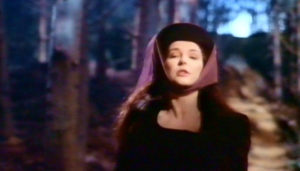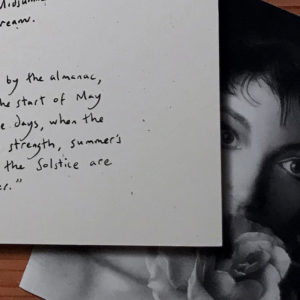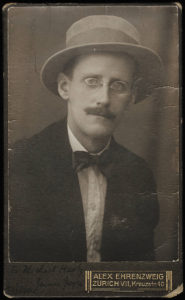It was on the 6th of December, 1933, that Federal Judge John M. Woolsey of the Southern District of New York ruled that the novel Ulysses by James Joyce was not only not obscene, but also a work of literary merit. He had spent the month prior reading the book, which had been banned in the United States since the time it was first published in 1922 on account of it potentially causing American readers to harbor “impure and lustful thoughts.” In 1934, thanks to Judge Woolsey’s ruling, Random House could finally publish the book and sell it in this country.
Ulysses follows the adventures of Leopold Bloom over the course of a single day, June 16, 1904, through Dublin. Joyce chose the date with intention: It was the day he first went out with Nora Barnacle, the woman he would spend his life with. You might celebrate Bloomsday with a reading of Ulysses. You might stop at the apothecary to purchase a bar of lemon soap. Certainly there will be stops to be made at pubs, and ale is known to play a big part in a good Bloomsday celebration.
James Joyce was first aware of people celebrating Bloomsday in 1924, just two years after the publication of Ulysses. In 1954, to celebrate the 50th anniversary of the events in the book, a more formal pilgrimage through Dublin was organized. Nowadays, you are likely to find Bloomsday enthusiasts around the globe, dressed in Edwardian garb and quoting James Joyce each 16th of June. How wonderful is that?
But if all that is above and beyond your means today, here are a couple of simple suggestions. You can read some Joyce, of course. I’ve yet to read Ulysses but I do love Joyce’s short story collection, Dubliners. Especially the final story of the book, “The Dead.” James Joyce bestowed many gifts upon us, and today is the perfect day to delve into them.
And then there is Kate Bush. She, too, has bestowed many gifts upon us. In 1989, Kate recorded a song called “The Sensual World,” based on the closing soliloquy by Molly Bloom, Leopold’s wife, in Ulysses. She actually wanted to set the soliloquy to music, but at the time, the James Joyce estate refused her request. There was at some point, though, a change of heart, and in 2011, Kate was granted permission to remake the song according to her original vision. The newer version, recorded 22 years later, is familiar yet different, the fruit perhaps of a maturity of voice and vision. Both, I think, are beautiful, and today the words are on my lips, as they have been since the month began. With these things––the songs, the stories, the ale and lemon soap––Bloomsday will come and go through this sensual world. Love calls us to the things of it, like the season’s first sumptuous apricots and peaches, the ocean’s first lapping at our ankles. June is filled with days like this––Bloomsday, Midsummer––that make these things manifest.
The Sensual World, 1989
Flower of the Mountain, 2011


